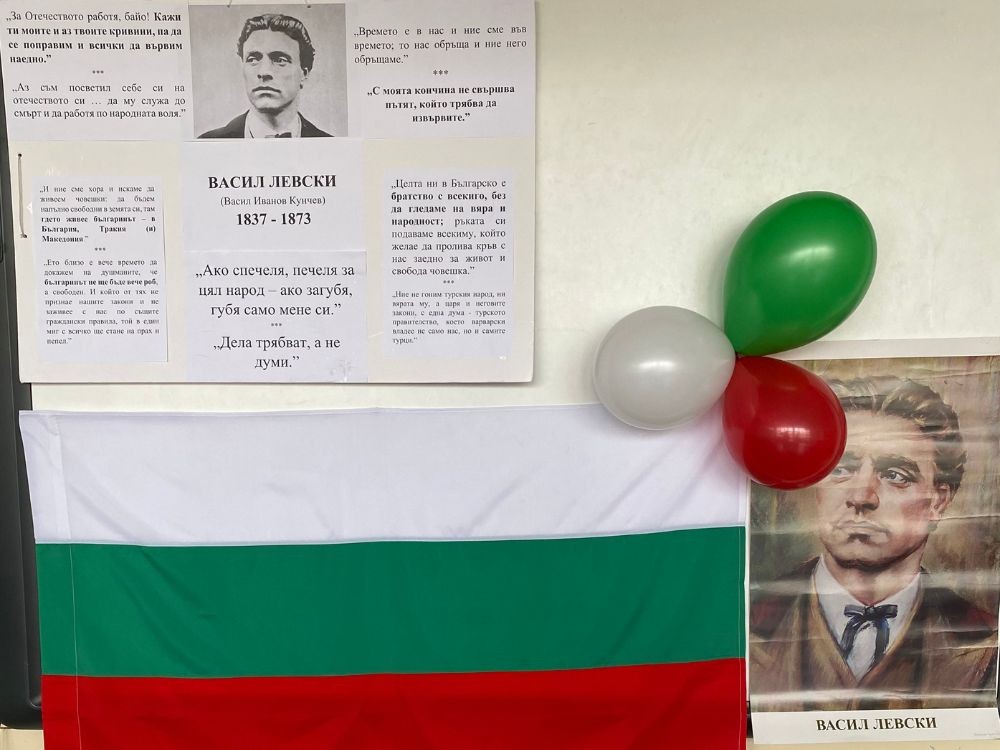 7
7
Over the past 20 years more and more Bulgarians have been living and working in Ireland, but not just in the capital, some are in Shannon, in the Western part of the country. The wave of expats from Bulgaria going to Shannon was in 1991 and in 2001. And as the newcomers were young people with children, many felt a need to have a Bulgarian educational centre there. That was how Bulgarians living in Shannon set up a non-profit association 11 years ago, and named it after national hero Vasil Levski.

The idea was for this organization of Bulgarians living abroad to prepare and set up a Sunday school in Shannon. And now this school is a centre around which the life of the Bulgarian community there revolves, and it too is named after Vasil Levski. There are 29 children of various ages currently studying there, and each attends classes thanks to their families wish to see them learn and speak Bulgarian.
What the Vasil Levski association in Shannon is proud of most is that even though teachers are in short supply, with the help of the Ministry of Education in Bulgaria, and their own resources, they are able to cope. They say that they have been able to provide a maximum of information about Bulgaria, and to answer all of the children’s questions.

Daniela Georgieva chairs the Bulgarian association Vasil Levski, and she literally spends every off day she has at the Sunday school. As organizer and volunteer in the school work, she has had many conversations with the children about Bulgaria’s national heroes, and especially about Vasil Levski’s work and role in the country’s history.
It was on her initiative that the children responded to Radio Bulgaria’s invitation to take part in our initiative marking the 150th since Levski’s death.
“The videos and the essays by the older students have deliberately not been edited, so that we can see exactly what the children are thinking, because their view of Vasil Levski is very interesting to us, adults,” Daniela Georgieva says.
“The oldest children see Vasil Levski as a political figure, and the youngest – as a fictitious, fairytale character. Talking about Vasil Levski with the children aged 10-11 was the most fun because they cannot believe someone like that ever actually existed – a man charismatic enough to lead so many Bulgarians, but also intelligent, well-read, well-spoken, good looking, physically fit to be able to endure traveling around Bulgaria in all seasons. That is why one of the children said to me he imagined Levski as a superhero. Though we may not think about it as we go about our daily lives, we Bulgarians are very much in his debt, because Levski was so ahead of his time, conveying a message to us, the future people of Bulgaria.”

The idea to name their organization after Vasil Levski came spontaneously:
“I suggested that we choose the name of a figure who has shed light in the country’s history so that we too can be something of a beacon for Bulgarians, and several people exclaimed: Vasil Levski! That gave me a unique feeling because even the expression – someone who sheds light – immediately evokes the name of Levski,” Daniela Georgieva says, in an interview with Radio Bulgaria’s Gergana Mancheva.
Translated from the Bulgarian and posted by Milena Daynova
Photos: Vasil Levski association, Shannon
The village of Hotantsa, near the Danube city of Ruse, is hosting the Hotantsa Sarma Festival , a celebration of Bulgaria’s culinary and folk heritage. Organised by the local cultural and community centre ( chitalishte ) Svetlina-1928 , the festival..
He does not accept the definition of "apostle" or "missionary", although for many he is exactly that - a messenger of God in the world, proclaiming His Word. He first became a priest in his native Vidin diocese, in Northwestern..
Over 80% of Bulgarians are expected to start using artificial intelligence in the next three years , across all age groups. Today, it is almost impossible to find a Bulgarian student who does not turn to ChatGPT when preparing homework. This..
Over 80% of Bulgarians are expected to start using artificial intelligence in the next three years , across all age groups. Today, it is almost..
"We cannot escape from modern technologies, but we must think about how we can use artificial intelligence to improve the quality of..
Serbians around the world mark one year after Novi Sad tragedy On November 1, Serbians abroad will join the call of..

+359 2 9336 661
